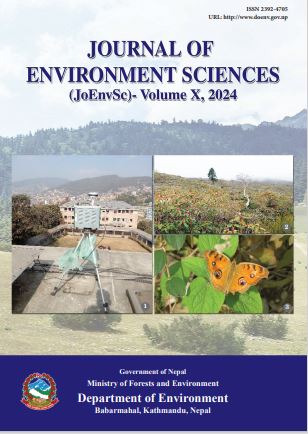Role of International Relations to Solve Environmental Issues: An Emerging Discourse
DOI:
https://doi.org/10.3126/jes.v10i1.67300Keywords:
Collective collaboration, environmental problem, global emerging issues, global impacts, international relationsAbstract
Environmental issues and international relations are increasingly interconnected as global ecological challenges—such as climate change, deforestation, and pollution— transcend national borders, demanding collaborative efforts among nations. These environmental problems can influence diplomatic agendas, trade policies, and international treaties, often leading to new alliances or irritating tensions. Multilateral agreements like the Paris Agreement signify how countries work together to address environmental concerns, reflecting the critical role of diplomacy in fostering global sustainability and managing shared resources. Consequently, environmental issues have become a central aspect of international relations, shaping both policy and geopolitical dynamics. International relations are crucial for addressing environmental issues because these problems transcend national borders and require coordinated global responses. Effective international cooperation enables the sharing of resources, knowledge, and technologies necessary to tackle challenges like climate change, biodiversity loss, and pollution. Through treaties, agreements, and collaborative frameworks, countries can establish common goals, enforce environmental standards, and mobilize collective action, ensuring that efforts to protect the environment are consistent and impactful on a global scale.




